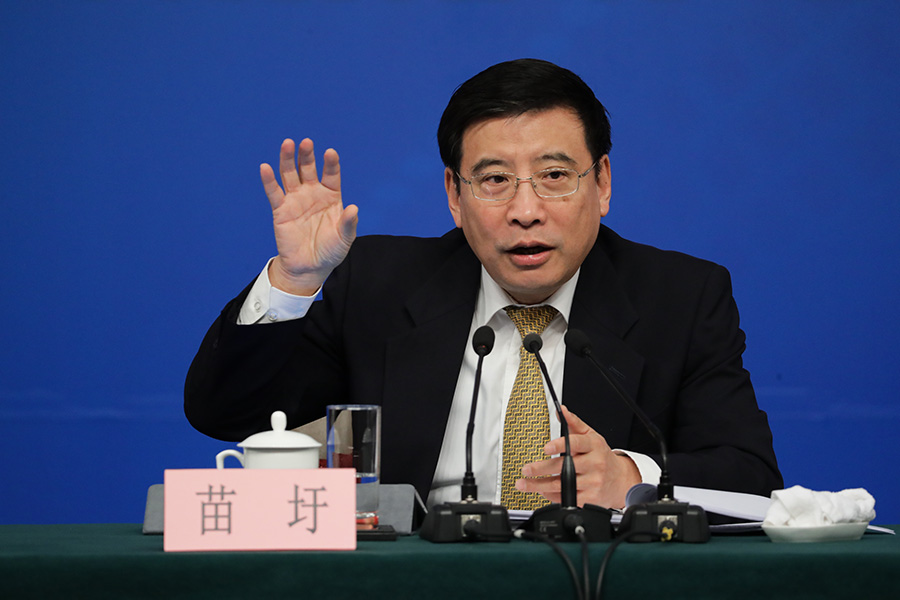Chinese Authorities Address Media Concerns on ‘Made in China 2025’

Chinese authorities responded to press concerns on the ‘Made in China 2025’ plan during the annual meeting of China’s top legislature on March 11 in Beijing.
The ‘Made in China 2025’ plan and its related policies are applicable to all businesses in China, be they domestic or foreign, said Miao Wei, Minister of Industry and Information Technology, in response to complaints from the European Union Chamber of Commerce that the strategy discriminates against foreign firms.
Miao stressed the contribution of foreign-invested enterprises to China’s economic growth since the beginning of reform and opening-up, and stated that China holds no discriminatory policy toward foreign-funded companies under the guidelines of the ‘Made in China 2025’ plan.
China welcomes foreign investment in high-end manufacturing, intelligent manufacturing, and green manufacturing, said the minister, as the country pushes ahead with its industrial upgrades and transforms its consumption structure.
China has attached great importance to bilateral and multilateral cooperation in the enforcement of the ‘Made in China 2025’ plan, Miao added. China has signed cooperation agreements with Germany, achieving progress in setting up standards for intelligent manufacturing.
In response to over-production of low-end robots, Miao stressed the principle of developing the robot business in conformity with the respective strengths of different areas in China.
Robots now serve many industries in China, and several robot makers stand out for their international influence, said Xin Guobin, Vice Minister of Industry and Information Technology, international cooperation is also deepening,
China produced 72,400 industrial robots in 2016, marking a year-on-year growth of 34.4 percent, Xin added.
At the press conference, Miao reiterated the importance of cutting the cost of internet access and raising the network speed, saying that this helps accelerate the integration of the internet and the real economy, and thus inject new momentum into China’s economic growth.
This helps axe the cost of information services for enterprises, boost information consumption, and reduce the digital gap between rural and urban areas in China, Miao added.
The press conference also covered topics including financing challenges faced by small and micro businesses, industrial upgrade plans for old industrial regions in northeastern and northwestern China, and cooperation in the IT industry between the Chinese mainland and Taiwan.
